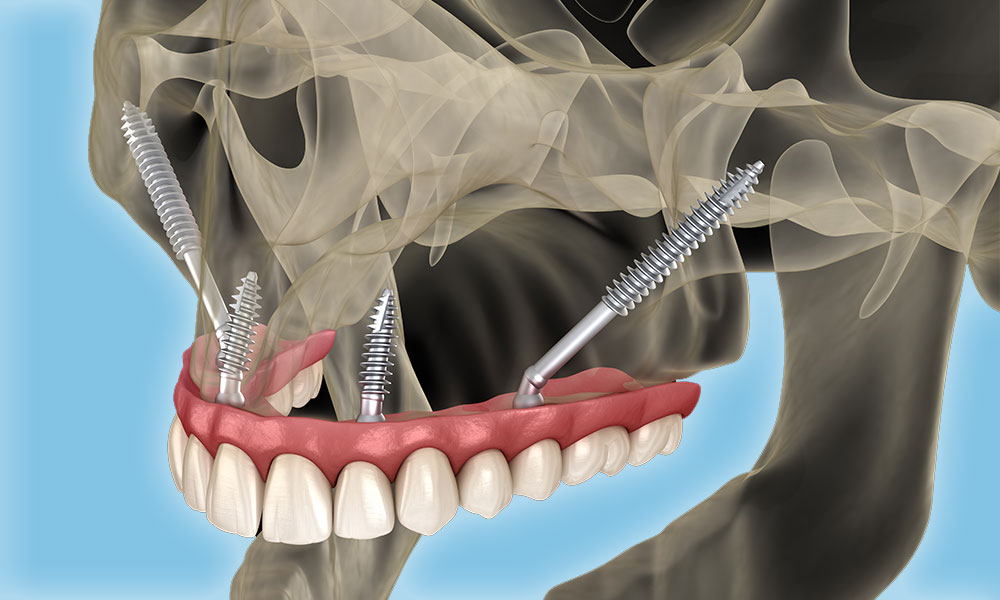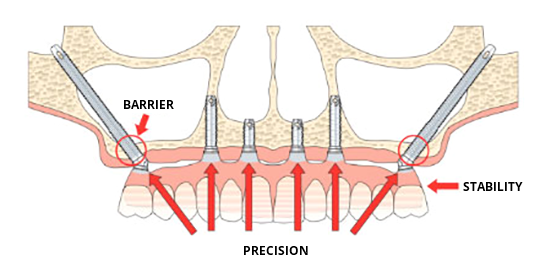Procedures
Zygomatic Implants


Zygomatic Implants & How They Work
Some patients have significant bone loss in their jaw. If this is your situation, you may have been told that you are not a candidate for dental implants. But with new technology called zygomatic and pterygoid implants, almost all patients are now candidates for dental implants.
Zygomatic implants were developed to make dental implants accessible to patients with excessive bone loss, allowing them to fuse to bone with a 98% success rate.
Zygomatic Implants FAQs
What are zygomatic implants?
Zygomatic and pterygoid implants are secured to the cheekbones (zygoma) instead of the jawbone. They are placed through an incision within the mouth. They can often be used to immediately hold a complete, modified denture. This allows for immediate chewing of a soft diet.
What are the advantages?
The success of zygomatic implants to fuse to bone is approximately 98%.
We are pleased to provide this advanced technique. We like it because it makes dental implant placement accessible to patients with excessive bone loss. It eliminates the need for extensive bone grafting.
What is involved in the surgery?
How long do zygomatic implants last?
Who needs zygomatic implants?
Traditional implants require healthy and intact jaw bones. This is because the implants are placed in the jaw bone. If the jaw bone is not strong or complete, traditional implants are not an option. If you are looking to replace all your upper teeth, but have insufficient bone in the upper jaw area (maxilla), zygomatic implants might be a great option for you. Zygomatic implants do not anchor the implants in the jawbone, but rather the cheekbone (zygomatic bone). This allows for implants to bypass the jawbone and does not require bone grafting.
How much do zygomatic implants cost?

